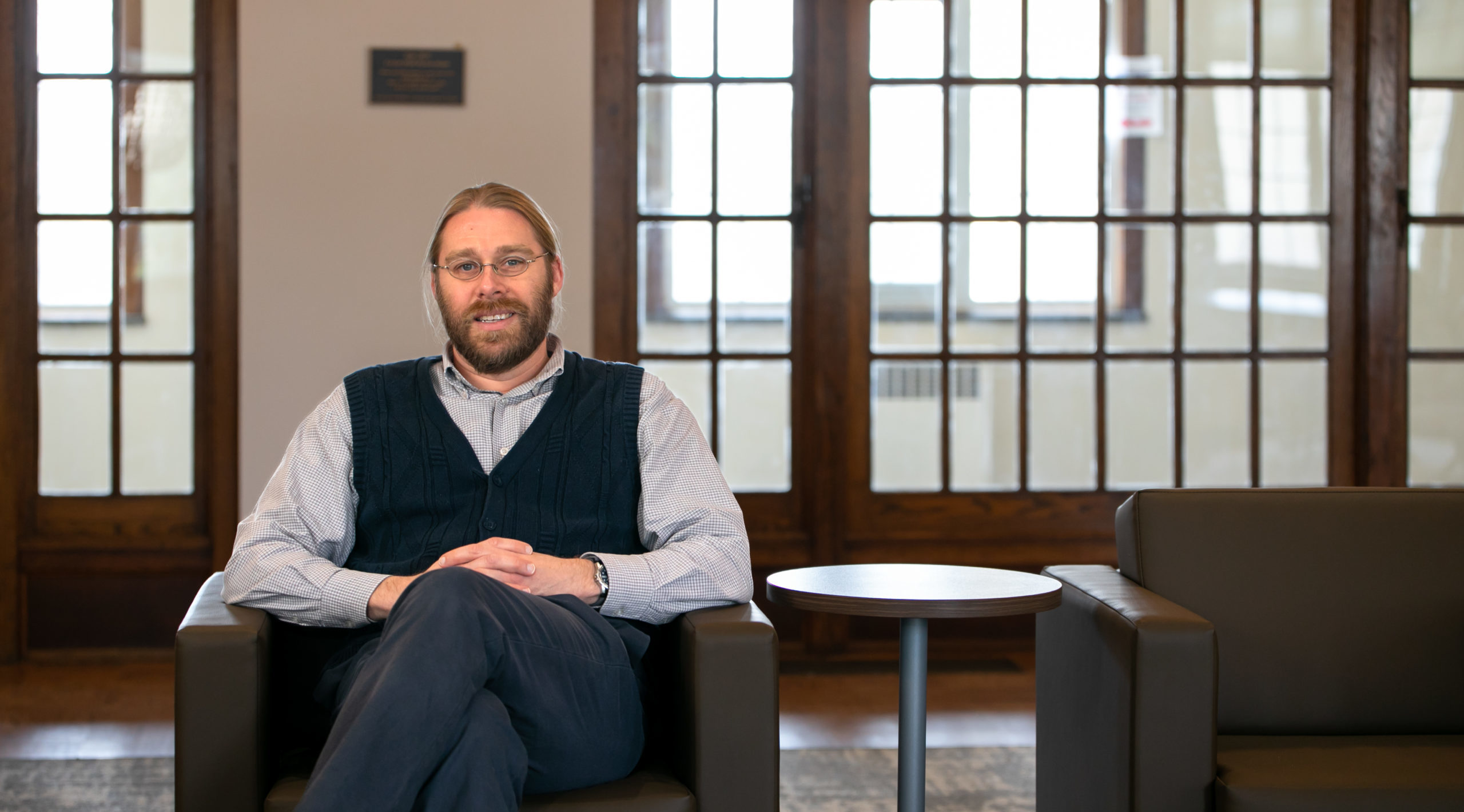
London ON – Tom Peace was planning to be a mechanical engineer. Then toward the end of his last year of high school in Hamilton, Ontario, he attended a Great Books weekend offered by a local university. Something clicked, and Peace realized he wanted to study in the arts and humanities. That fall he found himself at Acadia University in Wolfville, Nova Scotia. The rest, quite literally, is history.
Peace went on to complete a BA at Acadia, a master’s at St. Mary’s University, and a PhD at York University. For the past ten years, he has been a member of the Huron University history department.
It was at Acadia that Peace first became intrigued by the relationship between the Acadians and the Mi’kmaw, a local Indigenous people. “There was a myth that they got along really well during the colonial period,” he says. “I wanted to probe that, to understand it better. I just started pulling at threads and kept on going.” It turns out that the story was far more complex. He has continued to explore how diverse communities interacted with one another as they made their homes in northeastern North America in the 18th and 19th centuries.
Last year, he published The Slow Rush of Colonization, which analyzes over one hundred years of interactions between the Mi’kmaw, Wabanaki, Peskotomuhkati, Wolastoqiyik, French, and English in the Maritime region. The book demonstrates how Indigenous peoples maintained their independence and sovereignty, in the face of attempts by the French and English empires to dispossess them.
Peace and his colleagues in Huron’s History Department work to make learning about history accessible and relevant to students. Peace adds,
We explore the past to help us understand the world we’re living in, and hopefully, to shape the world we want to live in.
Students are encouraged to engage actively in expanding their knowledge and context of history, doing their own research projects using primary and secondary sources. The department also offers several opportunities to understand the past through travel and experiential learning opportunities that are only offered at Huron. For example, the Lake Erie Borderlands Field School is a two-day field trip to deepen understanding of the region’s Indigenous, Black and settler pasts. Another trip took students to the U.K., where they conducted and presented research related to enslavement and anti-slavery activities in the 19th century.
More recently, Peace has led a special project called Hidden Histories, a crowd-sourced online map and database with fascinating stories about the history of southwestern Ontario. He admits that when he first arrived in London in 2014, he thought it was a “sleepy place.” When he started learning about local history, his perspective changed.
Hidden Histories came about during the pandemic. The stories have become a big hit on CBC Radio’s Afternoon Drive show. Once a week, Peace speaks to the show’s host about one story, outlining interesting details and setting the broader historical context. Recently, for example, he told the story of Tony Small, the first documented Black visitor to the area.
Small was a free Black man who helped rescue an Irish aristocrat, Lord Edward Fitzgerald, from a War of Independence battlefield. The two became fast friends. When Fitzgerald decided to tour the Canadian and U.S. frontiers in 1789, Small accompanied him. Apart from its inherent interest, Peace says the story of a Black man and his aristocratic friend is useful in thinking about issues of race and enslavement in 18th century North America.
“We all live in communities,” Peace says. “How we live together with difference is something we all need to work on.” He adds: “Good history is produced for, by and with communities.”
To learn more about the Hidden Histories project and listen into the radio segments, please click here:
To discover more about Huron’s History Program, visit here.
Dr. Tom Peace was recently featured in a CBC Q&A article about London, Ontario’s history in the cigar-making industry. Check it out here.




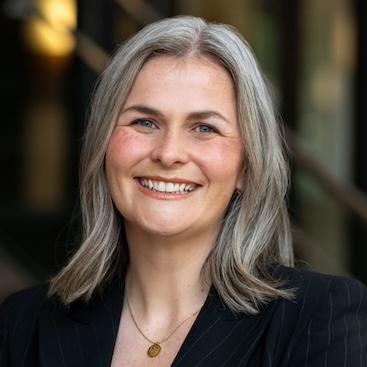
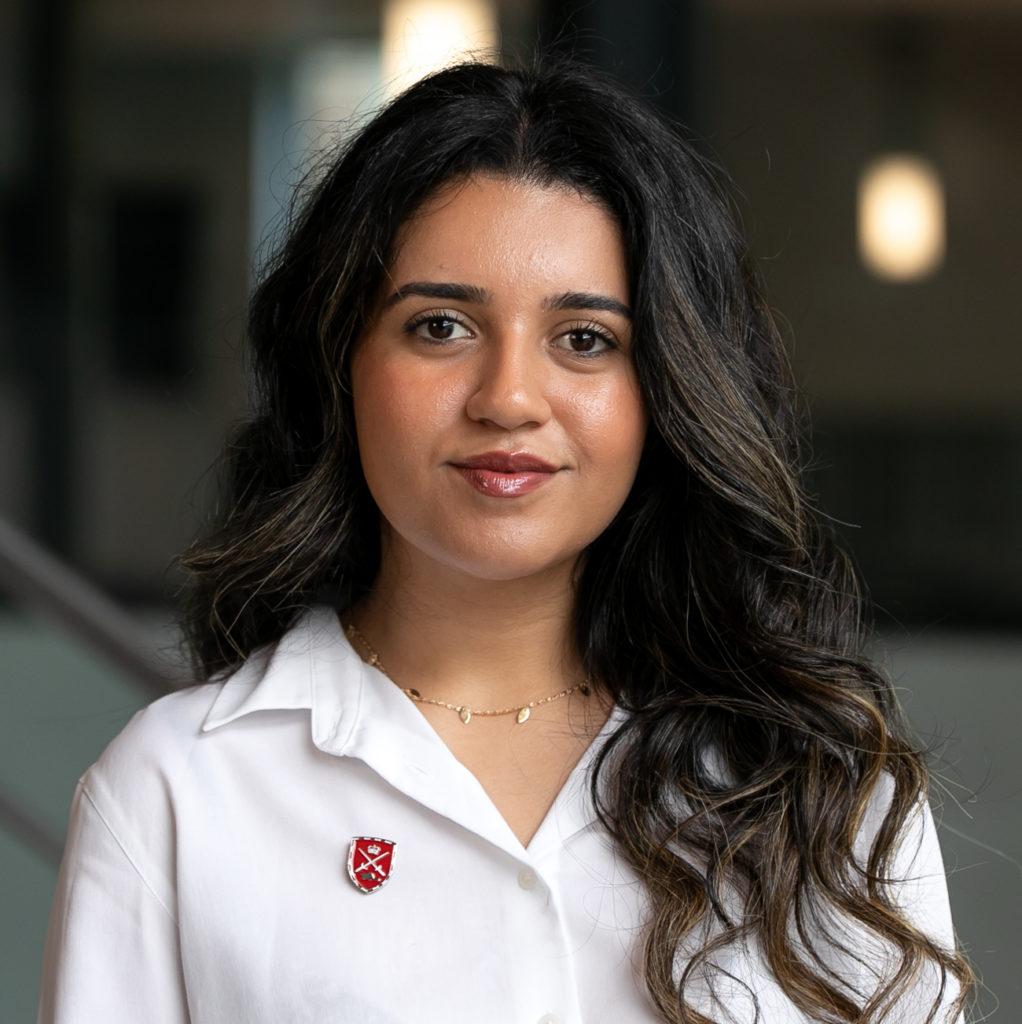
 Lisa Jones Keenan is the Vice President of Sales at Xplornet Communications, the largest rural fixed wireless broadband service provider in Canada.
Lisa Jones Keenan is the Vice President of Sales at Xplornet Communications, the largest rural fixed wireless broadband service provider in Canada. 
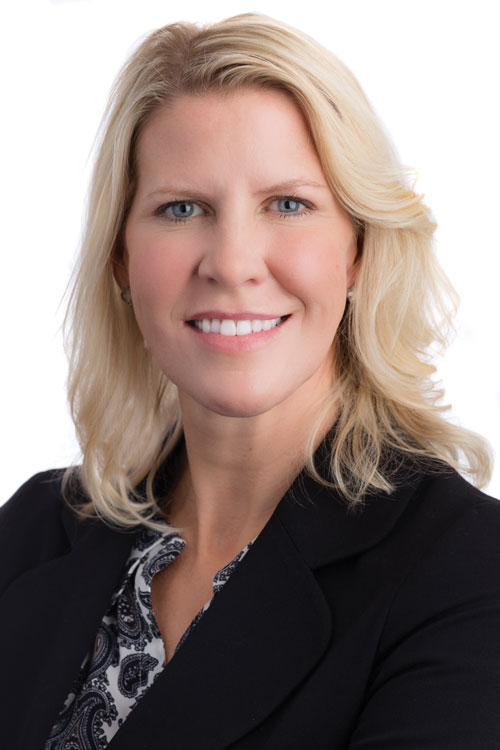 Leigh Allen is the AVP, Global Strategic Research, Reinsurance Group of America Inc., one of the world’s largest global life and reinsurance companies.
Leigh Allen is the AVP, Global Strategic Research, Reinsurance Group of America Inc., one of the world’s largest global life and reinsurance companies. Yola Ventresca is a Managing Partner, Lerners LLP, Secretary of Huron’s Board of Governors and a Huron Class of ’02 alumni. Selected as one of Canada’s “Best Lawyers,” she is passionate about the value of Liberal Arts in helping students succeed in their careers.
Yola Ventresca is a Managing Partner, Lerners LLP, Secretary of Huron’s Board of Governors and a Huron Class of ’02 alumni. Selected as one of Canada’s “Best Lawyers,” she is passionate about the value of Liberal Arts in helping students succeed in their careers.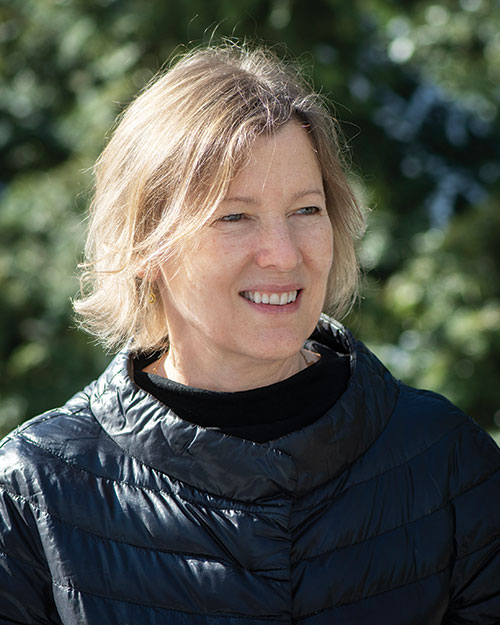 Susan Farrow is an Assistant Professor in The Temerty Faculty of Medicine at the University of Toronto and a Founding Partner and Co-Director of The Toronto Institute of Group Studies, an organization offering certified training and education in group leadership.
Susan Farrow is an Assistant Professor in The Temerty Faculty of Medicine at the University of Toronto and a Founding Partner and Co-Director of The Toronto Institute of Group Studies, an organization offering certified training and education in group leadership. 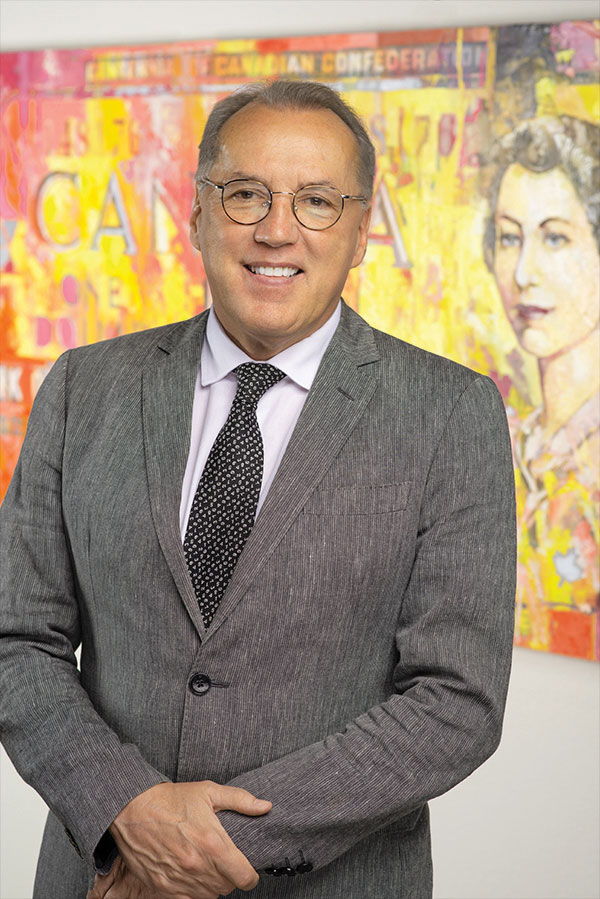 Frank Holmes is CEO and Chief Investment Officer of U.S. Global Investors, as well as a business commentator, philanthropist and Huron Class of ‘78 alumnus. Holmes also serves as the Executive Chairman of HIVE Blockchain Technologies, the first cryptocurrency mining company to go public in 2017.
Frank Holmes is CEO and Chief Investment Officer of U.S. Global Investors, as well as a business commentator, philanthropist and Huron Class of ‘78 alumnus. Holmes also serves as the Executive Chairman of HIVE Blockchain Technologies, the first cryptocurrency mining company to go public in 2017.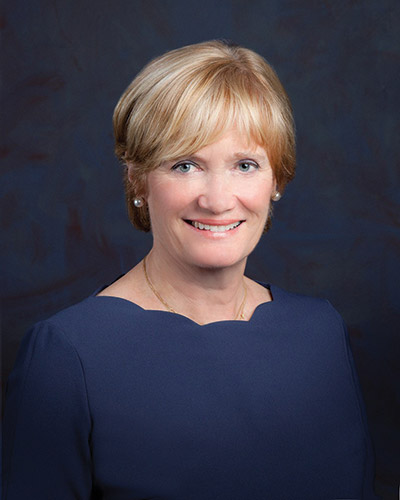 Kelly Meighen is an experienced philanthropist and volunteer. In her role as president of the T.R. Meighen Family Foundation, she has created a legacy of volunteerism and philanthropic giving in the areas of youth mental health advocacy, environmental conservation and cultural vibrancy.
Kelly Meighen is an experienced philanthropist and volunteer. In her role as president of the T.R. Meighen Family Foundation, she has created a legacy of volunteerism and philanthropic giving in the areas of youth mental health advocacy, environmental conservation and cultural vibrancy. 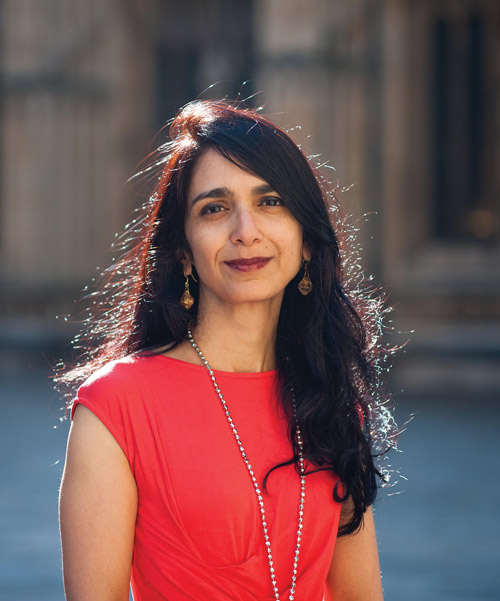 Ranjita is Executive Chair of the Oxford Global Partnership, advising investors, businesses, family offices and entrepreneurs on sustainable, inclusive and responsible value creation. A Business Fellow at Oxford University’s Smith School, Ranjita engages with companies on pursuing value with values, and teaches a postgraduate “Essentials of ESG & DEI” course.
Ranjita is Executive Chair of the Oxford Global Partnership, advising investors, businesses, family offices and entrepreneurs on sustainable, inclusive and responsible value creation. A Business Fellow at Oxford University’s Smith School, Ranjita engages with companies on pursuing value with values, and teaches a postgraduate “Essentials of ESG & DEI” course.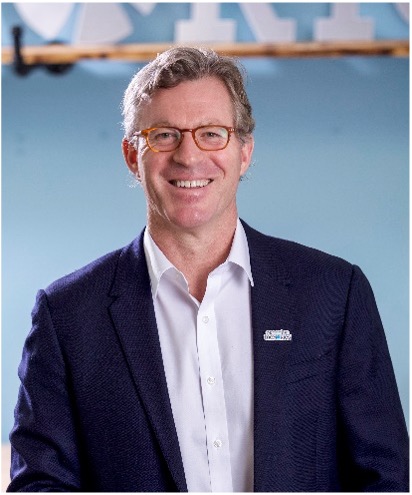 Caleb Hayhoe is the Founder & Chairman of Flowerdale Group and a Huron Class of ’85 Alumnus. Flowerdale Group is a Hong Kong based family office with a global investment outlook across public markets, real estate and private investment. Hayhoe previously spent over ten years building a global sourcing business together with an exceptional team, and remains committed to entrepreneurialism and helping great ideas become sustainable companies.
Caleb Hayhoe is the Founder & Chairman of Flowerdale Group and a Huron Class of ’85 Alumnus. Flowerdale Group is a Hong Kong based family office with a global investment outlook across public markets, real estate and private investment. Hayhoe previously spent over ten years building a global sourcing business together with an exceptional team, and remains committed to entrepreneurialism and helping great ideas become sustainable companies.



